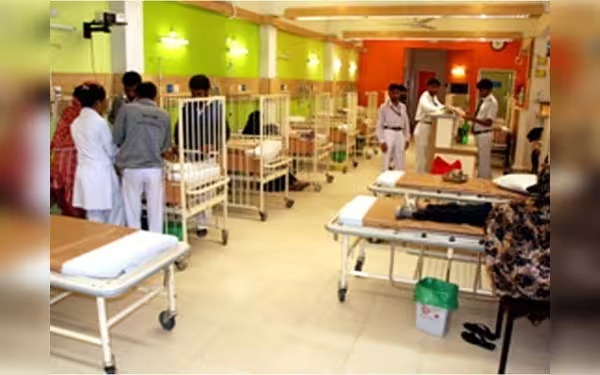Sunday, November 17, 2024 12:38 AM
Health Crisis in Sindh: Surge in Dengue, Chikungunya, and Malaria Cases
- Hospitals overwhelmed with mosquito-borne disease patients.
- Health authorities urge preventive measures against outbreaks.
- Community awareness campaigns launched for public health.
 Image Credits: en.dailypakistan.com.pk
Image Credits: en.dailypakistan.com.pkSindh faces a health crisis as hospitals overflow with dengue, chikungunya, and malaria cases, prompting urgent public health measures.
KARACHI – The health crisis in Sindh has reached alarming levels as hospitals are overwhelmed with patients suffering from mosquito-borne diseases. The recent surge in the mosquito population across Karachi and other regions of Sindh has led to a significant increase in cases of dengue, chikungunya, and malaria. These diseases are not just numbers; they are affecting the lives of countless individuals, leaving them in distress and discomfort.
Medical experts have reported a concerning rise in the number of patients presenting symptoms such as high fever, chills, severe body aches, and nausea. These symptoms can be debilitating, making it difficult for patients to carry out their daily activities. The situation is particularly dire in urban areas where the density of the population is high, and the conditions are ripe for mosquito breeding.
Health authorities are urging the public to take preventive measures to combat the spread of these diseases. Simple steps such as using mosquito repellent, wearing long-sleeved clothing, and ensuring that there is no standing water around homes can significantly reduce the risk of mosquito bites. Community awareness campaigns are also being launched to educate people about the importance of maintaining cleanliness and hygiene.
As the situation continues to evolve, it is crucial for individuals to remain vigilant and proactive. The health crisis in Sindh serves as a reminder of the importance of public health measures and the need for collective action. By working together, communities can help mitigate the impact of these diseases and protect the health of their families and neighbors. It is essential to stay informed and take action, as prevention is always better than cure.













